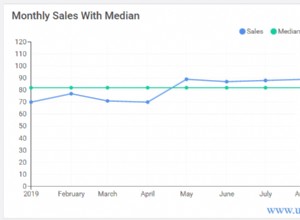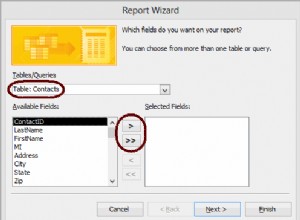Se stai fornendo un timestamp UTC e desideri secondi dal 1/1/1970, allora:
[...]
Modifica
Ho rivisitato la mia risposta originale e non mi è piaciuta, è meglio la seguente:
// Given an ISO8601 UTC timestamp, or one formatted per the OP,
// return the time in seconds since 1970-01-01T00:00:00Z
function toSecondsSinceEpoch(s) {
s = s.split(/[-A-Z :\.]/i);
var d = new Date(Date.UTC(s[0], --s[1], s[2], s[3], s[4], s[5]));
return Math.round(d.getTime()/1000);
}
Nota che la stringa nell'OP non è conforme a ISO8601, ma quanto sopra funzionerà con essa. Se il timestamp è nel fuso orario locale, allora:
// Given an ISO8601 timestamp in the local timezone, or one formatted per the OP,
// return the time in seconds since 1970-01-01T00:00:00Z
function toSecondsSinceEpochLocal(s) {
s = s.split(/[-A-Z :\.]/i);
var d = new Date(s[0],--s[1],s[2],s[3],s[4],s[5]);
return Math.round(d.getTime()/1000);
}
Se i secondi decimali devono essere adattati, è necessario un piccolo sforzo in più per convertire la parte decimale in ms.




